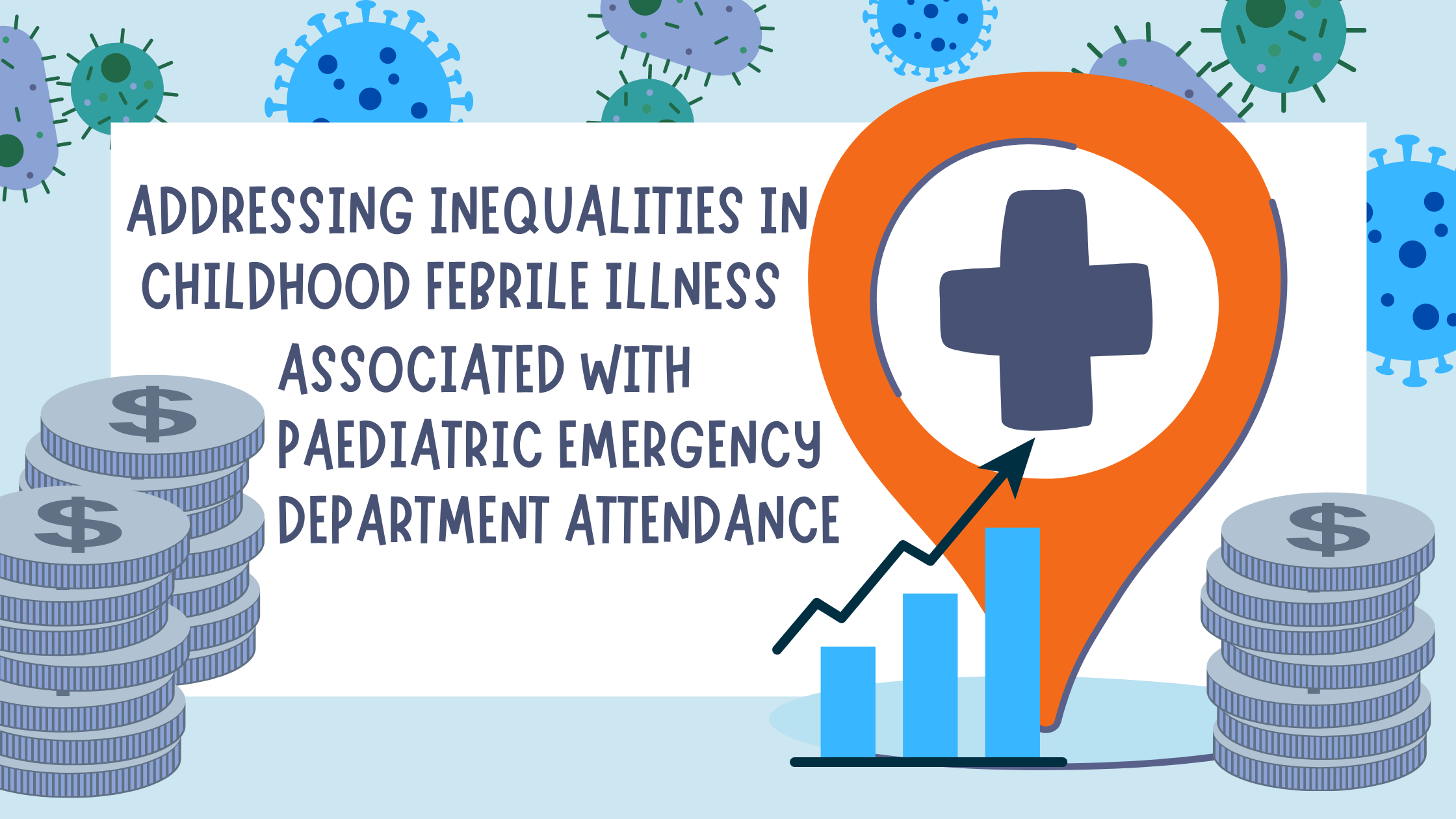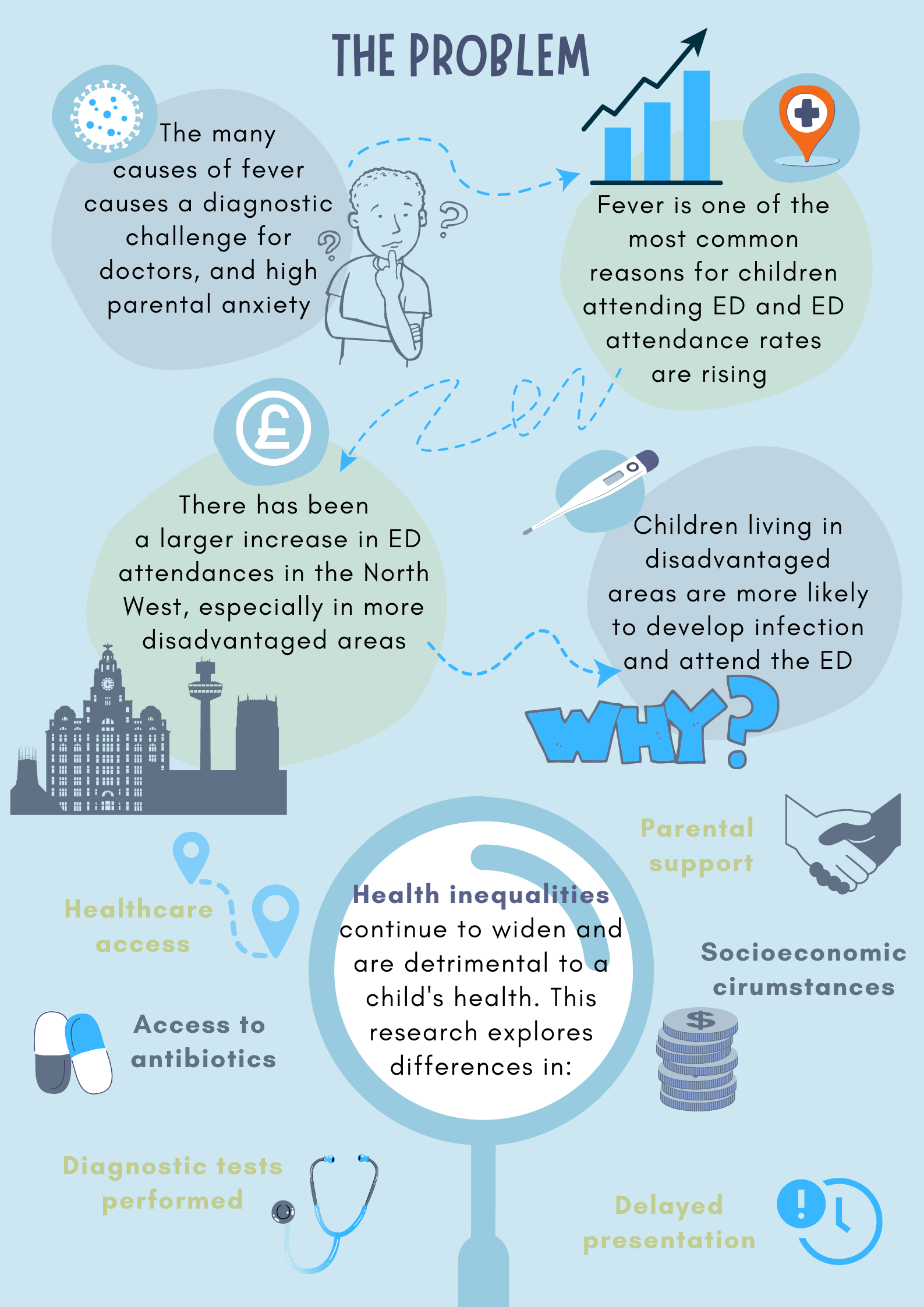Febrile illness associated with paediatric emergency department attendance
Contact: Courtney Franklin

During the study this page will be regularly updated for the benefit of participants.
There are many causes of fever. Most due to self-limiting viral infections which could be treatable at home or at non-emergency healthcare services. OR, it could also be a presenting feature of very serious bacterial infections such as pneumonia and meningitis, both of which are leading causes of death and are avoidable. This broad range of causes of febrile illness provide both a diagnostic challenge for healthcare professionals, and a high degree of parental anxiety. Distinguishing between children who can safely be cared for at home or in a primary care setting, and ensuring quick diagnosis and treatment for those children with a threatening illness is essential.
The number of children in England attending A&E in the UK is continuing to increase. Febrile illness is one of the most common reasons for ED consultation in children and accounts for around 10% of these attendances. This could reflect several factors, including changes in parents’ health seeking behaviours, risk aversion among health care professionals and access to primary care and ED. Pressures on emergency care in England pose a huge burden on the NHS and we need to reduce this burden. with most cases of fever due to self-limiting viral infection, it is important to understand the reasons behind these children presenting to the ED. Learn more about the problem here.
There is also a clear difference in the North West compared to the rest of England and this increase in paediatric attendances has been markedly dramatic in disadvantaged cities such as Liverpool. But we don’t know why. Socio-economic factors influence increasing attendance rates and children who come from more deprived backgrounds are more likely to develop infections. The social conditions for families in disadvantaged areas continue to deteriorate and can have consequential health outcomes. it is essential to explore the pathways taken by these children to hospital.

(pic credit: Alder Hey Hospital twitter)
There has already been work done to look at factors influencing the timing of presentation and admission to hospital for children with serious infectious illness and also the influencing factors of how parents’ manage their febrile child. My research will add to this, and explore any socioeconomic factors related to delayed presentation and management of children with febrile illness. For example, what is the influence of socioeconomic status on whether certain diagnostic tests are performed? Are children from deprived backgrounds given equitable access to antibiotics if needed, compared to less deprived children? Are there differences in the threshold to seek medical advice? Are there differences in reasons behind attending the ED between parents from less and more deprived areas? And how does the affect the outcome for that febrile child?
This is a mixed methods study with an overarching research question of ‘How do childhood SECs and other key exposures (such as health behaviours and family income) influence important child health outcomes from febrile illness due to differences in pathways for febrile illness?’. My project comprises 3 studies.
Studies 1 and 2 are quantitative studies, analysing routinely collected data to explore trends and associations between childhood SECs and outcomes for febrile illness associated with ED attendance nationally, and in Liverpool.
The third study will comprise a series of participatory interviews will be conducted with a subset of both parents and healthcare professionals to look at perceptions of the reasons for ED presentation. We will use journey maps to help look at the decision making.
If you are a Parent and want to be involved in the study click here.
To find out more about the study click here.
